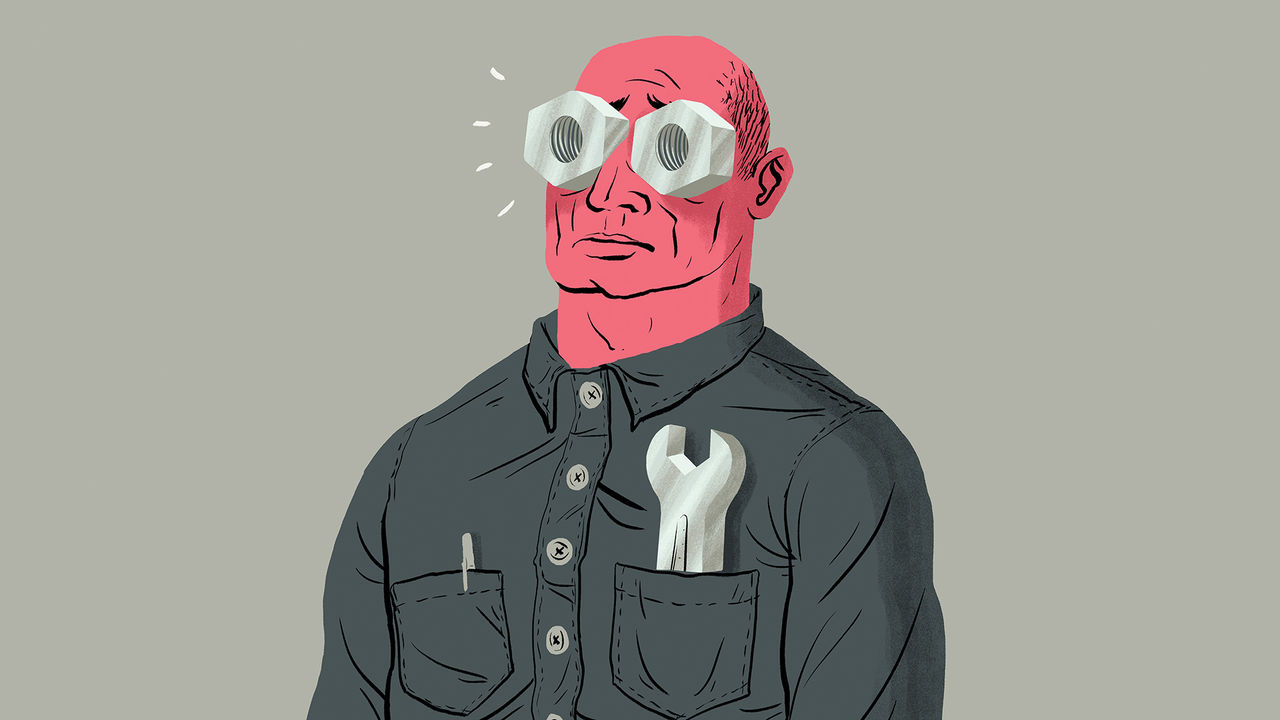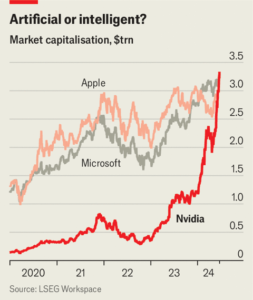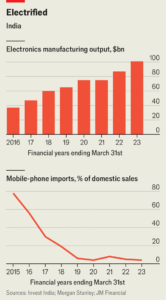
Your browser does not support the <audio> element.
If there is one thing politicians agree on these days, it is that manufacturing jobs are “good” jobs. Joe Biden is betting that huge subsidies for new factories will transform the outlook for America’s workers—and November’s election. His acting labour secretary recently embarked on a jolly-sounding “Good Jobs Summer Tour” to trumpet the president’s plans. Donald Trump, Mr Biden’s rival, is just as eager to get more wrenches into the hands of American workers, mostly by slapping tariffs on foreign goods. Politicians across the rich world believe that reversing the decades-long decline in manufacturing employment would leave workers better off.
Your guest Bartleby is not convinced. He has, admittedly, never worked in a factory, and thus feels no nostalgia for hard hats and high-vis vests. Still, the idea that deindustrialisation has made work worse is hard to square with the fact that data on worker satisfaction have been steadily improving for years.
The argument that manufacturing jobs are better than other sorts has a long pedigree. Adam Smith believed that manufacturing was “productive”, unlike services such as banking, retail or hospitality. The factories of the Industrial Revolution transformed living standards in Europe and America in the 19th century. Yet they were also awful places for workers, managing to be both horribly dangerous and tremendously boring. Things did not get much better with the rise of mass-production in the early 20th century. Workers in Henry Ford’s carmaking plants, though relatively well paid, complained that work was stultifying. As one Ford worker noted, “If I keep putting on Nut Number 86 for about 86 more days, I will be Nut Number 86 in the Pontiac bughouse.”
Even during the post-war period—paradise lost, in the eyes of many Western politicians—people were hardly thrilled about working in factories. In 1970 Fortune magazine coined the phrase the “blue-collar blues” to describe the alienation many manufacturing workers felt in an impersonal industrial system. One pundit noted that such a worker would be “easy prey for demagogues who appeal to his resentment and his desire for revenge”, which sounds familiar.
Manufacturing enthusiasts will no doubt counter that jobs in the sector are much better today. Workplace accidents occur a fraction as often as they once did. Most factories are air-conditioned. Robots do many of the heaviest and most repetitive tasks. And around a third of those who work in manufacturing never go near a rivet, performing white-collar roles such as design and engineering.
All that may be so, but compare workers of a similar education level and there is little evidence they would gain by moving from services to manufacturing. One paper by statisticians at America’s Bureau of Labour Statistics found that, across a variety of measures including pay, benefits, job security and safety, “many industries within services equal or exceed manufacturing.” This Bartleby’s analysis of British data similarly shows that job quality in the manufacturing sector is no better than average.
For decades economists observed that manufacturing workers enjoyed a wage premium over comparable workers in other industries. A recent paper published by the Federal Reserve, however, shows that this premium has “disappeared” in recent years. Those who point to the insecurity of gig jobs, such as delivering takeaway meals, would do well to remember that manufacturing jobs are often more cyclical than those in services. They are also more likely to be automated away. It is not immediately obvious that a job tending to an industrial robot is more satisfying than one operating an espresso machine at Starbucks, especially for workers who enjoy some human interaction.
According to Mr Biden, “A job is about a lot more than a pay cheque. It’s about your dignity. It’s about respect.” That is true. Yet dignity and respect should be available for workers wherever they are employed. If not, politicians should focus their attention on ensuring the right regulations are in place, instead of spending billions of dollars trying to recreate a past that was far less rosy than they imagine.
Companies, of course, have a role to play as well, with plenty of evidence demonstrating that bosses who treat their employees well reap the rewards. And workers themselves need to face the fact that nostalgia misleads. Yes, work can be a drag. But it is probably the best it has ever been.■
To stay on top of the biggest stories in business and technology, sign up to the Bottom Line, our weekly subscriber-only newsletter.















